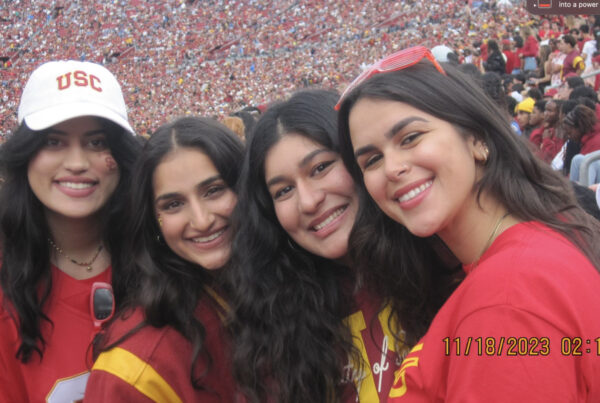As it is my last semester at USC, I wanted to share the courses that I am taking to complete my major and minor requirements. I am studying biomedical engineering with a minor in classical perspectives. Being only 16 units, classical perspectives is a small minor that fits well into the large engineering curriculum. It is a variation of classics, which is the study of Ancient Greece and Rome. I chose this minor because it allowed me to take classes in various departments (i.e. history, English, and classics) that all had the central theme of Ancient Greece and Rome. Hence, its name: classical perspectives = different perspectives of the classics.
Here is my course schedule for the semester:
- BME 403: Physiological Systems
This class is part lecture and part lab. In lecture, we learn about the respiratory and cardiovascular systems, specifically looking at how to implement engineering models of pulmonary function and blood flow through the body. In lab, we learn how to use a spirometer to measure inspiratory capacity of our lungs and a sphygmomanometer to measure our blood pressure.
- BME 416: Development and Regulation of Medical Products
This class is also part lecture and part lab. In lecture, we learn about the Food and Drug Administration, the major body of the executive branch that regulates medical devices, drugs, and other medical products. In lab, we are continuing to work on our senior design project from last semester. My team’s project is a smartwatch that monitors Parkinson’s disease tremors and predicts when medication will wear off.
- BME 499: Principles and Applications of Tissue Engineering
This is my favorite class of the semester! We are learning about how cells and tissues are cultured and engineered in the lab for use in a variety of medical applications. For example, tissues made from stem cells and extracellular proteins can be used to model human disease or drug delivery, and they can also be implanted into patients to replace damaged tissue.
- CLAS 151: The Legacy of Rome
This is one of my classes that counts toward my minor. We learn everything from the origin stories of Rome all the way to the fall of the empire. The most interesting parts of the class are Rome’s constitution that blends monarchy, democracy, and aristocracy, Rome’s military strategy and ideology, and the influence of Greek culture like art and poetry on Roman culture.
- CLAS 170: Classics of Music and Literature: From Ancient Greece to Contemporary Los Angeles
I am taking this class for two units to fulfill my minor. It is taught jointly by a professor from the Thornton School of Music and a professor from the classics department. Half of the time, we discuss the literary devices and meanings of classics texts such as poetry written by Ovid and Virgil. The other half of the class is dedicated to listening to music that is adapted from the texts.




